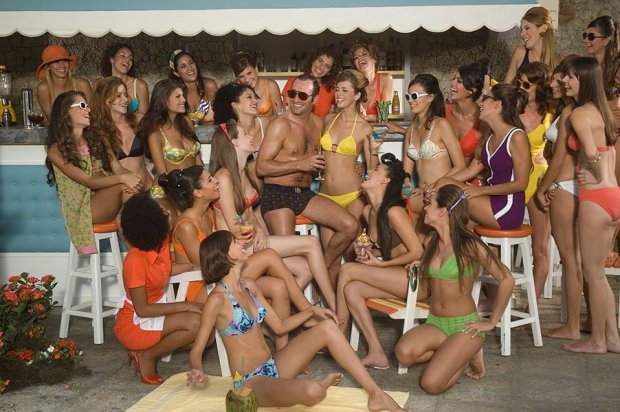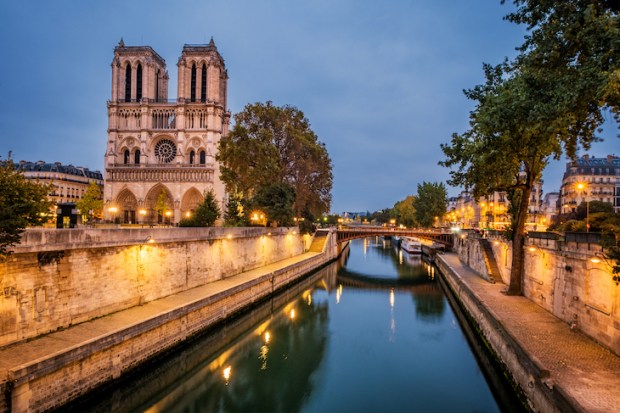If they weren’t insufficiently weary of politicians, the French will be invited to vote all over again for the Assemblée Nationale, the nation’s parliament, on 12 and 19 June.
Citizen lassitude notwithstanding, the election may produce a louder, if not assuredly more effective, opposition to the prolongated reign of the second Sun King, the newly reelected President Emmanuel Macron.
When fresh-faced Macron was first elected in 2017 in a stonking landslide, his portmanteau political movement, La République En Marche!, went on to win a commanding presidential majority in the National Assembly elections that followed. This bloc of deputies has loyally enabled Macron ever since – though the deputies themselves have proved a motley crew, one of them was caught last week buying lingerie with her parliamentary credit card.
This time? I have predicted for months that after having been re-elected with a reduced majority, Macron’s coattails will prove too short to give him his majority. This prediction may be ahistorical. Voters of the Fifth Republic have previously obediently given newly elected presidents what they want. But few presidents have annoyed the French as much as Macron. Only 28 per cent expressed a preference for him in the first round last month. Abstention at close to 30 per cent was at near-record highs.
Little of France can be considered Macron country. The opposite is true. There’s a rebellious mood in the cities and in deeper France, the land of ronds-points and gilets jaunes. Coalescing this opposition is going to be tricky which is to Macron’s advantage. The opposition is hopelessly divided.
The traditional left is in chaos. Its voters have lost all contact with the Socialist party, whose candidate Anne Hidalgo, mayor of Paris, received less than 2 per cent of the vote in April. In departmental and regional elections the Socialists cling on in areas like Toulouse, where strong unions have traditional connections and influence over the legacy socialist party.
There’s a newer left, redder in tooth and claw but as yet far from presenting a convincing alternative. Jean-Luc Mélenchon, 70, a deputy, a clever politician who came third with 21.95 per cent in the first round in April, was barely beaten into the second round by Le Pen on 23.15 per cent. He has declared his ambition to be prime minister and, in an echo of the rallying cry of the famous socialist Léon Blum, has declared a Front Populaire to win control of the National Assembly. The greens and communists have joined his front.
Mélenchon is well-read, quick-witted, a tremendous orator and television performer, autocratic, short tempered and often disagreeable. The ultra-left economic and social policies he advocates appear utopian and unrealisable. His promises would cost €250 billion a year, 10 per cent of GDP. The often-made comparison with Jeremy Corbyn is not unreasonable, not least in the fanaticism of many of his supporters. Mélenchon has proven voter appeal among young voters and some clever advisers, including Clémentine Autain, a journalist and deputy in Mélenchon’s own movement, La France Insoumise. But it’s far-fetched to imagine his coalition winning a majority.
Then there’s Le Pen, again, a politician only nominally on the right. Her economic programme is hardly distinguishable from Mélenchon’s. She’s interpreted the result of the presidential election, in which she lost round two with 41 per cent of the vote against Macron’s 58 per cent, as having increased her credibility as a potential national leader. Her father failed five times to win the presidency and she has failed three times. Ninth time lucky, she suggests.
The programme of Madam Le Pen is more incoherent than ever, an odd para-Colbertiste mélange of socialism and nationalism. To call her extreme right is a gross simplification. She’s hoping her Rassemblement National, which her father founded as the National Front, can gain seats across the north and south of France, with her at the head of a noisy oppositional bloc.
Other oppositional elements to Macron include the centrist Républicains, who are practically insolvent after their presidential candidate Valerie Pécresse failed even to win 5 per cent of the first round presidential vote, although it has some regional strengths, and the nascent Horizons party of Édouard Philippe, a former Républicain, mayor of Le Harve, a former prime minister fired by Macron for being more popular than his boss. His new political movement seems more of a personal vehicle than a credible movement.
Éric Zemmour, the French Tucker Carlson – whose insurgency fizzled out on 7 per cent in the first round, not just because he was demonised by the media, but because he was unable to move beyond a base on the bourgeois right – is nonetheless putting forward candidates, and declaring that his political quest will continue. But it would be surprising if his Reconquête movement wins many or any seats.
This leaves Macron with an open centre lane. The traditional Républicains on the squishy centre right might hang on in some constituencies in the posher suburbs. But many of these deputies are not ideologically different from Macron and some will be looking for jobs. The two-round election will again be to Macron’s benefit, by pitting his centrist candidates against Le Pen or Mélenchon backed candidates who can be demonised as extremists. So I’m no longer confident that Macron will be denied a compliant assembly, even if he has to make some deals with Républicains or François Bayrou’s centrist MoDem party.
If Macron wins nominal control of the Assembly it won’t be quite the rubber stamp it has been. Will that matter? Macron will be hoping that with the opposition split, the media squared, he can do whatever he wants. He is still only 44 and believes Europe to be at his feet.
France, meanwhile, remains as ungovernable as ever. Macron’s re-election was greeted with renewed violence on the streets. The country is deeply in debt, inflation is ripping, fundamental pension reforms remain undelivered, schools and hospitals are in trouble, there’s a war in Europe and the mood remains ugly. Orders for more tear gas for the riot police seem prudent.
Got something to add? Join the discussion and comment below.
Get 10 issues for just $10
Subscribe to The Spectator Australia today for the next 10 magazine issues, plus full online access, for just $10.



















Comments
Don't miss out
Join the conversation with other Spectator Australia readers. Subscribe to leave a comment.
SUBSCRIBEAlready a subscriber? Log in